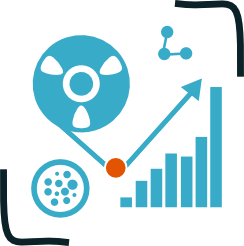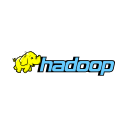Big data, even though this term is known for a long time, gained in popularity and became a symbol of revolution in the IT industry in recent years (next to mobile technologies and cloud computing). It is worth to know about their applications and where is the key to the effective use in business practice of their potential.
Data for arrangement
The biggest problem in understanding the concept of big data is probably the lack of its clear definition. Contrary to appearances, the most important feature of these data sets is not their size (which is a relative value), but the degree of their heterogeneity, disorder, and so the lack of a fixed structure. This feature hinders the processing process with the use of traditional methods such as, for example, SQL databases that work on data with a fixed scheme and defined relations. Moreover, a variety of desktop application, usually used in a fairly complex analyzes, are not a good choice in this case, because the processing capabilities of such an information stream are beyond the reach of individual workstations.

The diversity of processed data in dig data systems increases together with the technological progress, which takes place in the professional and consumer market sectors. Mobile appliances, intelligent metering systems, RFID readers, IoT devices, M2M communication and social networks are just a few of the sources, which continuously generate the data. These data are very diverse and seemingly impossible to correlate, but the task of big data systems is to organize the stream and generate information, which will provide a new quality.
The conclusion is pretty obvious: modern technology allows the relatively easy acquisition of sources of potentially relevant business data. The obstacle is their filtering, correlating and analysis. The use of big data systems, which work for the needs of an enterprise or an external client, creates an opportunity to gain access to the information. The acquisition of such information though traditional methods would be extremely expensive and often impossible.
Open tools
Significant reduction of costs related to the preparation of services in the big data sector is possible by eliminating the need to buy expensive licenses from commercial vendors. Among the software, which is available in an open source model, there is a large selection of tools that often constitute even a reference implementation of theoretical assumptions. While maintaining the appropriate implementation methodology, it is possible (without any doubt) to obtain solutions, which are attractive in terms of business, without the involvement of a large amount of resources.

A good example is Apache Hadoop, which belongs to the most important platforms for processing of big data sets. It is based on MapReduce model – a method of parallel data processing. Furthermore, it uses a distributed file system HDFS, which is designed to store large amounts of data in order to enable their effective processing. Popularity, efficiency and low maintenance costs of Hadoop clusters caused that already in 2012 it was used by more than half of companies from the Fortune 50 list.

More and more popular tool, although less frequently connected with the term of big data, is Elasticsearch. It is a full-text search engine, but its distributed architecture, rapid development and ease of combining with other components (along with Logstash and Kibana it forms the ELK stack) cause that it successfully replaces traditional solutions, because it is a more effective and easier to implement alternative. Moreover, it is well suited for integration with the Hadoop platform and used in search tools for anomalies and the analysis of system events.
forCore offer
We offer you the implementation of modern data processing platforms and their adaptation to individual requirements. We will help you in the optimal use of obtained data sets and in the enrichment of your company's offer with big data solutions. Our services include among other things:
- construction of data-processing systems in the basis of open source software,
- integration of big data systems with existing IT infrastructure,
- extension of enterprise applications to work with large data sets.
Big data opens great opportunities in many aspects of business activity. We assure that with the right approach, this activity will not be connected with huge costs.

